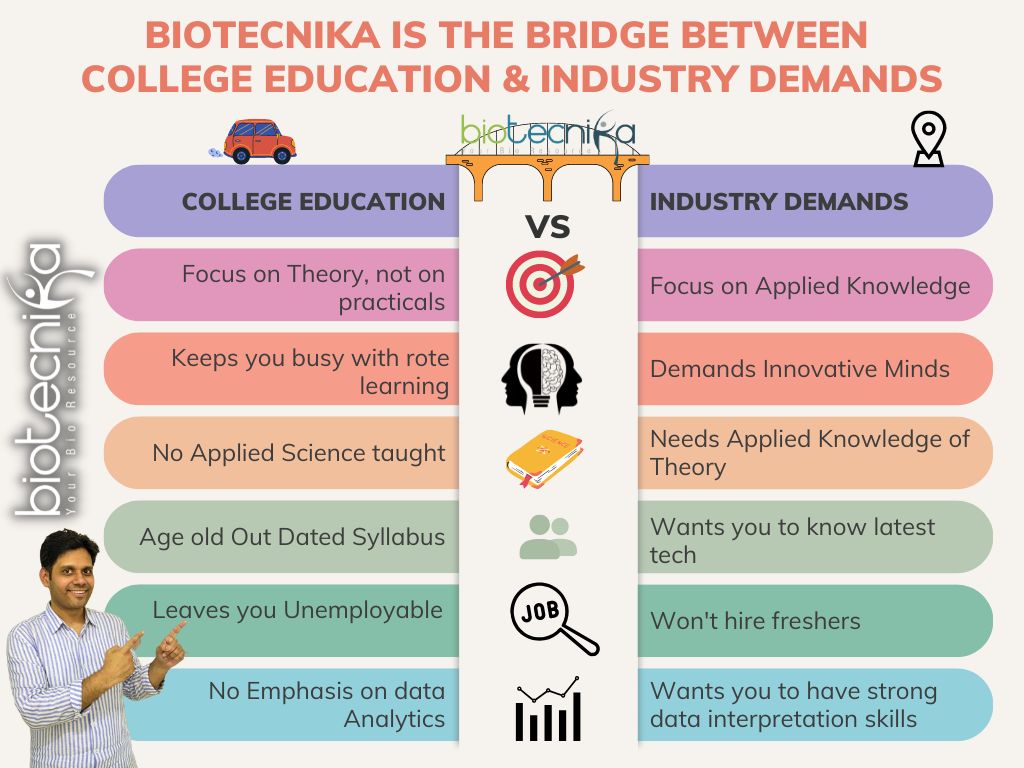Unknown Facts About Bioinformatics Tutor
Unknown Facts About Bioinformatics Tutor
Blog Article
The smart Trick of Bioinformatics Tutor That Nobody is Discussing
Table of ContentsBioinformatics Tutor for DummiesAll About Bioinformatics TutorThe 7-Minute Rule for Bioinformatics TutorThe Bioinformatics Tutor StatementsThe Facts About Bioinformatics Tutor Revealed
Initial task growth is relatively lengthy, as it includes careful preparation of the subject, structuring of deliverables, and consideration of the skills and experience levels of individuals. Nevertheless, when a project has actually been clearly defined and implemented, it has the potential to be reused in future sessions with only minor modifications to mirror updates in the field or suit differences in individual backgrounds. This makes project-based discovering a lasting and effective teaching method in the future, particularly in rapidly progressing disciplines like bioinformatics.To make certain continuity and reproducibility of understanding, offering common lab notebooks-- either physical or electronic-- is critical. These notebooks function as collaborative logs where pupils can tape-record their progression, code, approaches, and results throughout the training course. Not only do they reinforce knowing by motivating documents and reflection, however they additionally work as post-course recommendation products that individuals can speak with in future study or academic projects.
Coaches play an important function in the success of project-based training courses. Preferably, mentors ought to be active scientists with a comprehensive and updated understanding of both the academic foundations and useful applications of bioinformatics in their particular techniques. Their capacity to bridge facility concepts and real-world application is important in aiding students navigate the difficulties of interdisciplinary research study. In addition, advisors also function as good example and inspire trainees to proceed seeking careers in computational biology and related fields.
Fascination About Bioinformatics Tutor
Another trick aspect of the learning procedure is supplying participants the possibility to provide their work to others, especially to an audience past their instant project team. Final discussions or mini-conferences allow pupils to verbalize their findings, obtain useful feedback, and gain self-confidence in interacting scientific web content. This discussion component is usually a preferred among trainees, as it validates their initiatives and highlights the real-world relevance of their work.
The effectiveness of this method was confirmed by the extremely positive comments obtained after the first program was provided. The success triggered repeat offerings of the same course format in 2015 and 2016. Each version of the program was fine-tuned based upon participant responses and progressing finest techniques in rearing. These adjustments made sure that the core objectives-- hands-on discovering, partnership, and applied analytical-- remained undamaged while broadening the deepness and breadth of subjects covered.
A significant visualization that recorded individual view was a word cloud generated from reactions to the 2014 end-of-course survey. Participants were asked, "What was the most effective component of the training course?" and their feedbacks were compiled right into a visual word cloud. In this depiction, the dimension of each word suggests exactly how regularly it was stated, with words like "hands-on," "cooperation," "real-life troubles," "advice," and "interactive" showing up most prominently. This aesthetic comments strengthened the program's emphasis on experiential learning and mentor assistance.
The payments of people such as Rustici, G., Orchard, S., Cowley, A., and Twells, R., along with other members of the EBI Full Report user-training-working group, contributed in improving the program structure and web content. Their insights helped form a adaptable and comprehensive version that could be adapted to numerous institutional and regional contexts.
What Does Bioinformatics Tutor Do?

Jones, Rasmussen, and Moffitt (1997) also advocated for interdisciplinary understanding via joint job work, noting its capacity to imitate expert environments and prepare trainees for future academic or industry duties. In a detailed evaluation, Thomas (2000) analyzed numerous research studies on PBL and wrapped up that students not only perform well academically however also develop a much deeper understanding of the subject and improved synergy skills.
In the context of bioinformatics education, cutting-edge methods like classroom video games and simulation-based training have additionally been utilized. Schneider and Jimenez (2013) introduced the use of interactive video games to instruct organic data assimilation, enabling trainees to grasp complicated principles with experiential discovering. This sort of gamification complements the hands-on discovering emphasized in project-based programs by presenting an element of fun and competitors, which can further improve involvement.
Returning to the program reviewed here, the lessons gained from the implementation of project-based discovering in a bioinformatics establishing have broader implications for other STEM fields. The technique highlights not simply technological proficiency, however likewise interaction, cooperation, and important reasoning-- skills that are progressively valued in both academia and market.
Little Known Facts About Bioinformatics Tutor.
The scalability of the training course layout additionally makes it a sensible version for other establishments. With suitable customization based on local needs, available sources, and individual profiles, the framework can be replicated or adjusted for usage in other scientific domain names. Furthermore, the addition of structured mentorship and analysis methods assists guarantee consistent top quality and quantifiable knowing outcomes.

Finally, project-based understanding in bioinformatics uses a powerful strategy to mentor complex, interdisciplinary web content in a method that is both available and intellectually stimulating. By stressing collaboration, practical application, and essential query, such initiatives not just improve individual discovering however additionally contribute to the cultivation of a new generation of ingenious and skilled scientists.
6 Simple Techniques For Bioinformatics Tutor

An additional secret facet of the knowing procedure is offering individuals the opportunity to offer their work to others, especially to a target market beyond their prompt project group.In the more comprehensive academic literary works, project-based knowing (PBL) has actually been thoroughly studied and confirmed as an effective approach for promoting deep understanding, vital reasoning, and transferable skills. Adderley et al. (1975) highlighted the worth of project approaches in higher education, keeping in mind that they advertise active discovering and freedom. Schneider and Jimenez (2013) introduced the usage of interactive video games to instruct biological information combination, enabling pupils to grasp intricate concepts via experiential knowing.
Report this page